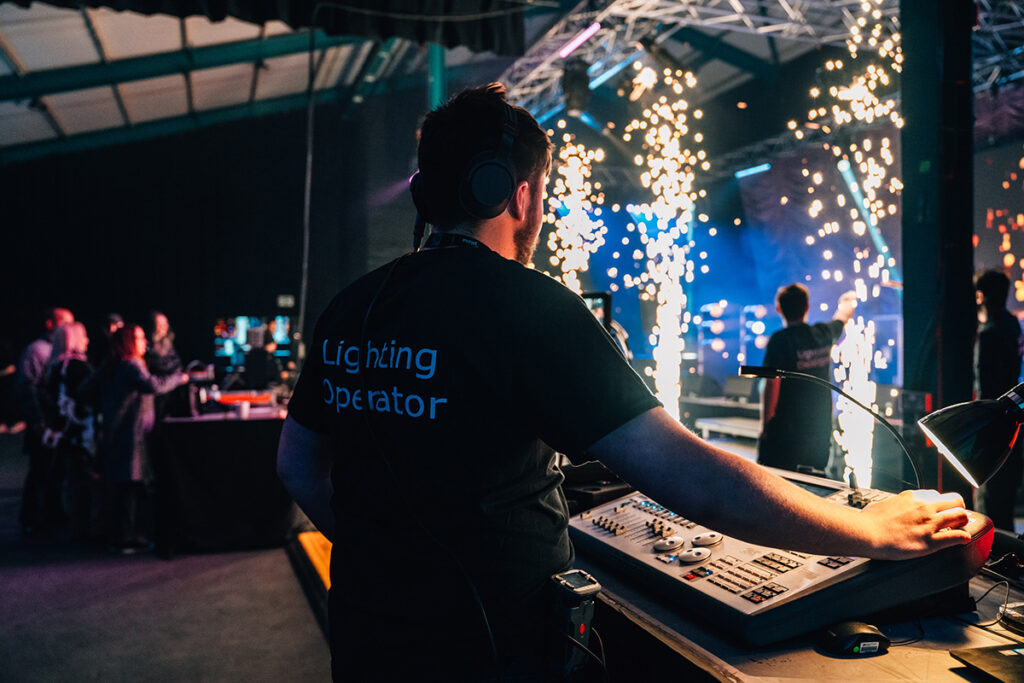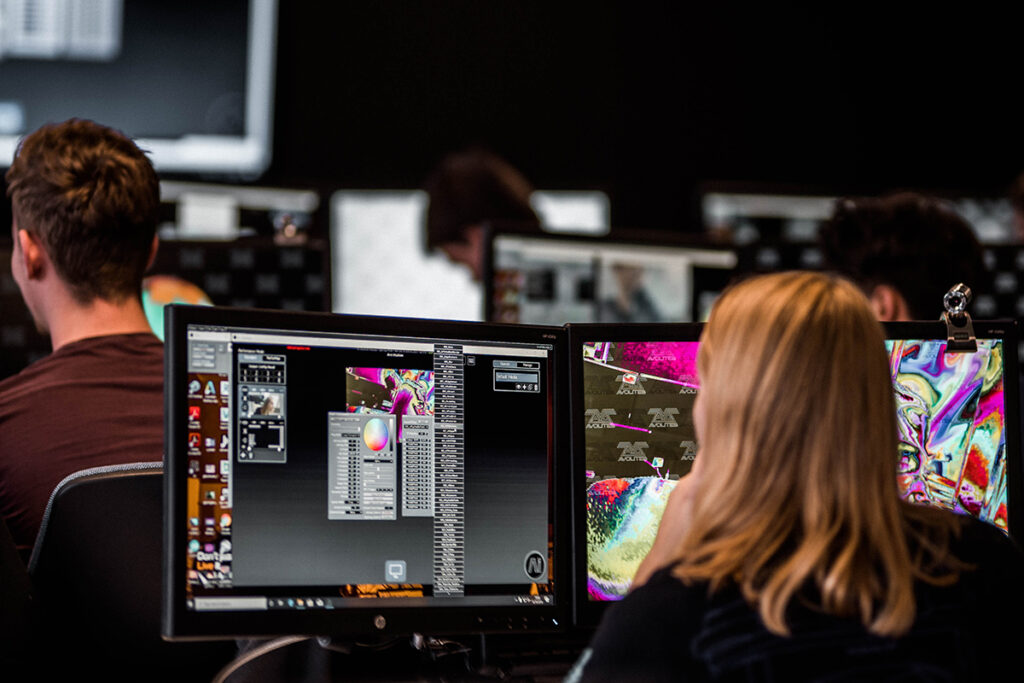
A growing number of creative roles require specialist, practical, and technical skills and experience. Rachel Nicholson, Head of Institution at Backstage Academy, highlights the importance of skills-based education for careers in the live events and creative industries.
As the live events and creative industries flourish, employers in the sector need new, highly trained individuals to meet the needs of a booming industry. As such, they are increasingly looking for graduates with transferable workplace skills.
Over the past few years, this has been the driving force behind students seeking higher education institutions which offer extensive practical experience. They are no longer interested in simply obtaining theoretical knowledge; they want to gain practice-oriented, hands-on training that will allow them to graduate with a high level of independence and competence.
This path generally demands more engagement and independence from students, but the journey is well worth it.
Solid benefits
Students often have a general idea about what a particular career is like, but they don’t always understand what a typical day might look like. Institutions offering immersive experiences play a vital role as they enable students to explore and experiment with all aspects of their chosen field of study, providing them with the opportunity to safely make mistakes and learn organically through trial and error.
Then, in the live events and creative industries, lecturers are usually not your everyday academics, but professionals at the top of their game. This means that students are afforded the opportunity to complete projects, engage with job-specific tasks, and learn specialised techniques under the direct supervision of active and experienced industry professionals.
Being taught by these professionals has the added benefit of enabling students to network from day one. In nearly every industry, a strong network can play a vital role in finding a job and building a successful career following graduation.
What’s more, students are exposed to cutting edge technology. Rather than simply learning about various types of equipment and how it might be useful for different jobs, they get to learn about, use, and sharpen their technical skills while studying. This means that when the time comes for them to transition to the workplace, they won’t have to spend time learning how to physically operate tools and equipment on the job as they have already gained hands-on experience.
Finally, practical and immersive education helps students unlock their creativity. Hands-on learning helps them understand that creativity is developed with effort and hard work and by being allowed to practically flex their creative muscles, students learn to develop better and more innovative ideas.
Seamless workplace integration
Professional bodies and industry leaders often suggest there’s a mismatch between the theoretical knowledge students acquire at university and the skills they need to succeed after graduation. The goal of most universities with a strong practical component is to address this mismatch by delivering early career professionals – creative and critical thinkers who possess the academic, practical, technical and applied skills required by industry.
While gaining in-depth knowledge of a core discipline and demonstrating the ability to learn is important, having employability skills tailored to their industry of choice is vital for graduates when entering the workforce.
By enabling students to gain hands-on experience throughout their education, practical institutions ensure that the transition to the working world is seamless. After all, students have already been exposed to the tools and environments in which they will work, and they have successfully navigated various real-world situations.
Immersive higher education
An institution which prides itself on immersing students in industry from day one is Backstage Academy. Dedicated to fulfilling industry’s growing need, its undergraduate and postgraduate degrees, short courses, and bespoke training programmes provide students with the relevant skills, knowledge and experience they need to take advantage of current and future opportunities.
Backstage Academy is located on campus at Production Park in Yorkshire, which is not only the world’s premier campus for live events, film, TV and virtual production, but which is also home to a community of live events businesses and six studios. It is the only place on earth where pioneering work is continually fed back into the educational ecosystem. Studying at Backstage offers students the exclusive opportunity to work with and learn from the leading designers, artists, technicians, producers and managers in the industry.
This year the institution also hosted the inaugural Backstage Symposium, which is aimed at promoting a broad dialogue to reflect on multidisciplinary and intersectional practices and education among academics, students, alumni and industry practitioners in the live events and creative industries.
To meet the growing demands of the booming live events and creative industries, the key lies in taking an immersive, hands-on approach at higher education level.












